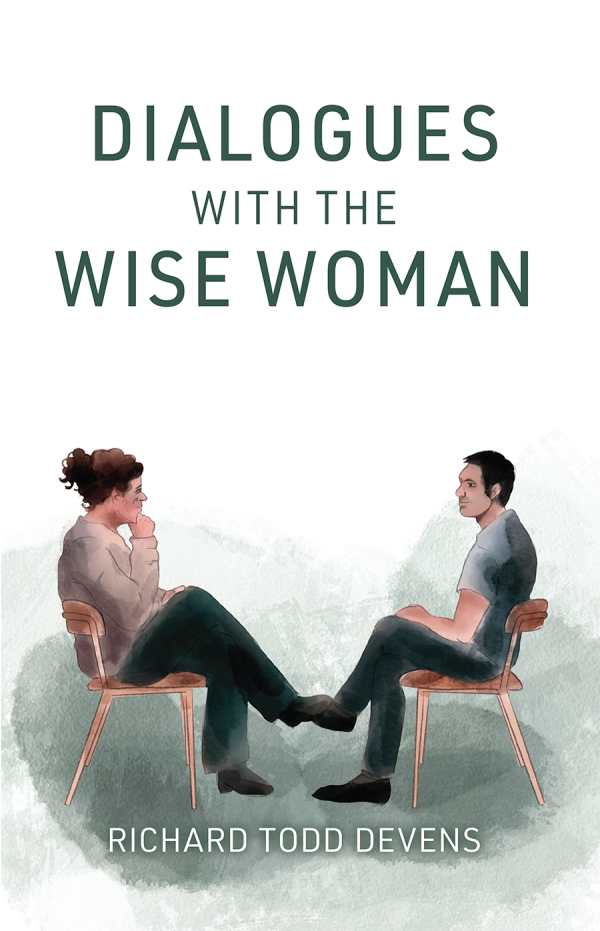Dialogues with the Wise Woman
An insightful therapist is a vehicle for provocative ethical and psychological conversations in the allegorical novel Dialogues with the Wise Woman.
In Richard Todd Devens’s spiritual novel Dialogues with the Wise Woman, a gambling allegory translates into a consideration of the costs and benefits of real-life relationships.
George is a forty-six-year-old man who searches for a romantic partner with diminishing hope. He offers any interested woman a chance to win big by laying down his own money in Las Vegas. If the woman wins money, she can keep half of the winnings; if she loses, she must go out with George on a date.
Soon enough, the Poker Queen comes along. Her skill is undeniable, but George is not attracted to her. He realizes the farcical nature of his ploy and withdraws from the agreement, but the Poker Queen calls out his cowardice. To save face, he sends her $500 to win big—and gets scammed. This eats at George for months—until he meets Mildred, a psychotherapist who helps him get to the root of his internal torment.
George and Mildred discuss ethics, romance, and human psychology. Mildred compares George’s $500 loss to the emotional focus he placed on the Poker Queen’s maliciousness. Their back-and-forth and the gambling allegory are engrossing; Mildred says many men will try to date a drop-dead gorgeous woman to see if they can get away with it, which she compares to how even the most intelligent people will gamble away all their money although almost nobody wins big.
George is struck by Mildred’s therapeutic approach; the eccentric psychologist is mystical and intriguing with her insight and warmth. She teaches him to focus on the present reality rather than on what he “should have” done in parables that translate to everyday wisdom. A later revenge scheme detracts from these insights somewhat; still, the ideas that it is not evil to punish a dishonest person and that self-flagellation is senseless are handled with sensitivity, prioritizing values like self-protection and self-esteem as essential to social goodness.
However, the inclusion of a debate about violent crime between Mildred and a professor dilutes the novel too much. The professor falls on the side of religious platitudes and universal love, while Mildred has a cold, straightforward approach to dealing with people who would cause harm, regardless of their reasons. The debate is stimulating, but the metaphysical questions about violent crime are unrelated to previous discussions about gambling and the Poker Queen. Mildred reveals a new side of herself—a cutting and heartless one that is hard to reconcile with her warm, personable demeanor toward her friends.
Subsequent dialogues between Mildred and George center additional concerns as well. They discuss the importance of focusing time on personal passion and improvement rather than comparison to others, with more obvious allegories in sports, fitness, and musicality. These interventions are shrewd, but they carry the narrative too far from its central plot. Mildred becomes long-winded in her explanations, and there are off-putting, absolutist refutations made about reparations for Black Americans and judgments about foreign political figures.
In the allegorical novel Dialogues with the Wise Woman, a critical psychotherapist explains absolute harm and speaks in favor of just punishments for wrongdoing people.
Reviewed by
Ali Ortiz
Disclosure: This article is not an endorsement, but a review. The publisher of this book provided free copies of the book and paid a small fee to have their book reviewed by a professional reviewer. Foreword Reviews and Clarion Reviews make no guarantee that the publisher will receive a positive review. Foreword Magazine, Inc. is disclosing this in accordance with the Federal Trade Commission’s 16 CFR, Part 255.

